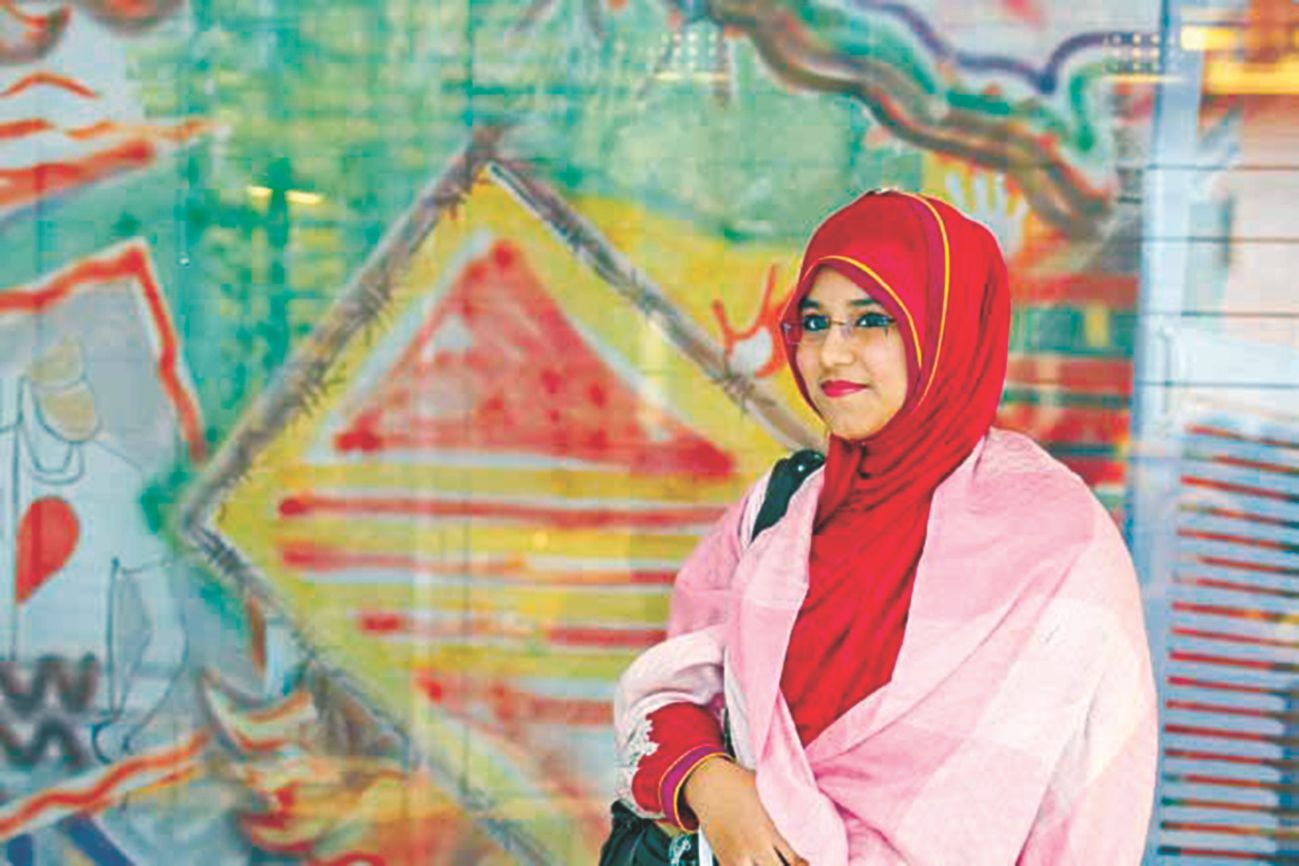Voices of the future
get a glimpse into the ways in which young minds hope to make a difference.

get a glimpse into the ways in which young minds hope to make a difference.
Stronger together
Lucky Akhter
The Shahbag Gonojagoron movement was largely influenced by young people. In fact, young women were particularly active in this movement. The most important aspect of youth mobilisation is taking forth social issues to them. Our society is gradually veering toward an individualistic way of life. People are busy thinking about their own concerns, their own lives. We need to create a space in this regard to attract youth to social issues. In order to do so, we need to create awareness.
The responsibilities a young person has towards their society is not emphasised within our education system. As a result, they grow up individually rather than in a social manner. This, I believe, is a huge impediment in youth mobilisation. As our education system allows for different kinds of education practices, we see that the young people develop in a separate way, with different values. Those studying in Madrassas have a different way of thinking as those studying in English medium or Bangla medium schools. We are not being able to weave these three sectors of education in one thread. That's why it's challenging to mobilise the youth or even relate the issues to them, as there is a different way of explaining these to each of these groups.
Just as how we were able to bring attention to a particular issue during the Gonojagoron movement, if we were able to talk about different issues that concern the wider public and are successful in taking them to the younger generations, we can definitely create a stronger, more elaborate platform.
Every sector of our life is determined by politics – be it education, economics or anything, everything is linked to politics. So, to all the youth of the country, you should be the ones determining the politics that dictate every part of your life. As a young citizen of Bangladesh, you should have the courage, the verve to determine the state of politics in your country. No matter where you are or what you are doing, try to work on this in whatever scale or magnitude. This is one huge way that you'd be helping your country.
The commentator is General Secretary, Bangladesh Students' Union.
From the Outside Looking In
Ahmad Ibrahim
It has almost been a year since I was last in Bangladesh and since then many things have happened. Before moving to the US, I used to work at this newspaper and that meant always being in touch with the latest news in the country as it broke. Here, the news comes sparingly and only through the cold, white screen of my laptop in the form of articles, or statuses on social media or through my parents on Skype. Predictably, only the most major news comes through: the ridiculous size of Muhith's budget, Sundarbans breathing its last, our cricketing team reaching newer and newer heights, the murders of bloggers at the hands of religious fanaticism.

Putting a positive spin on things is difficult especially when you're far away from the lived reality that the people in your home country experience on a regular basis. And so the question may very well arise- why come back? Why not just stay in a place that doesn't have all these troubles (by no means, though, is it trouble-free)? I have been asked that very question by many Bangladeshi expatriates who have successfully made the move without the slightest inclination of turning back. For all the talk of the burden of posterity falling on the shoulders of our bright young generation and the promise we hold in finally pulling our country out from the trenches of a war whose memory still haunts us, once the transition is made to a foreign country, the rhetoric does a 180 degree turn. Don't come back, we hear. Buy yourselves a house, a car, get a job and a green card will be on its way soon.
If there is one thing that I have gained from existing some 13000 kilometres away, it is context. Bangladesh does not exist in a bubble where the only players are her citizens. We are a low-middle income country in a region that has historically faced colonial violence for hundreds of years and still continues to do so in the form of big corporations and capital accumulating firms that consider our workers dispensable and our lands pollutable. The immigrant diaspora itself faces a great many instances of violence in their desperate need to provide for their families back home.
To those of us packing our bags for good, I can only say that things will hardly get better if the ones capable of making it so keep leaving by the droves. The international model of capitalism disproportionately benefits the capital-heavy old colonial powers and depleting ourselves of human capital is hardly the answer. Yes, we have our fair share of problems- rampant misogyny, racism, homophobia, transphobia, religious fundamentalism to name just a few. But we have a part to play, if we want to, in making things better and it's not from thousands of miles away. So to those of the bourgeoisie like myself getting college degrees, doctorates and PhDs abroad: come back, change the status quo and do right by your motherland.
The commentator is a student at Knox College, USA and is a cultural and literary activist.
For the greater good
Anshah Anju Khan Chowdhury
When it comes to social work, young people are often motivated by certificates or other 'rewards' given by social organisations. The fact that they volunteer for a work that benefits the less privileged section of the society will definitely look good in a CV or a university application but we shouldn't overlook the bigger picture here. A sincere effort taken by a young person who has the energy, the intellect and the physical ability to bring about a genuine change can change the way the society works.
I believe that while many individuals as well as organisational efforts surrounding social development focus on momentary welfare of the underprivileged, we need to think of initiatives that are more long lasting. For example, we at Durnibar Foundation do hand out rice to disadvantaged people of slums in Mohammadpur but we also ensure that the children of these families are sent to school. Our target groups are extremely poor families with a number of children, who are usually forced to work for their and their family's livelihood. This way we ensure that a family has enough to eat and their children are not forced into child labour. Volunteers of Durnibar frequently supervise these children's educational progress and provide them with necessary academic support. Young social workers could thus think of using the same resources for a more sustainable good of the deprived.

We youngsters have a lot of things at our disposal. We have the energy, the verve, even the time to engage in social change. Instead of wasting our time needlessly on Facebook, we could spend our energy, resources and time to actually do some good for the society. Even a few hours taken from our social networking time could reap huge benefits for those far less privileged than us. It's up to us to inspire the willingness to change our surroundings for the betterment of our future as well as those who don't have even the basic amenities that we take for granted.
The commentator is the founder of Durnibar Foundation.
 For all latest news, follow The Daily Star's Google News channel.
For all latest news, follow The Daily Star's Google News channel.